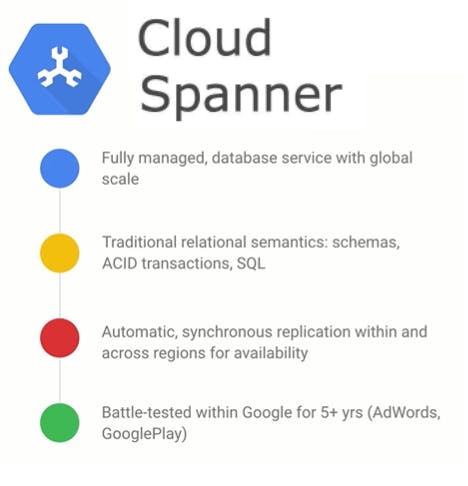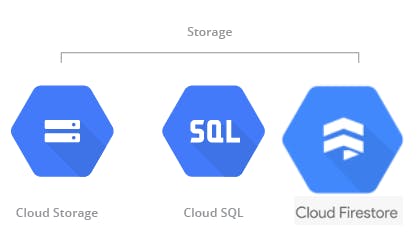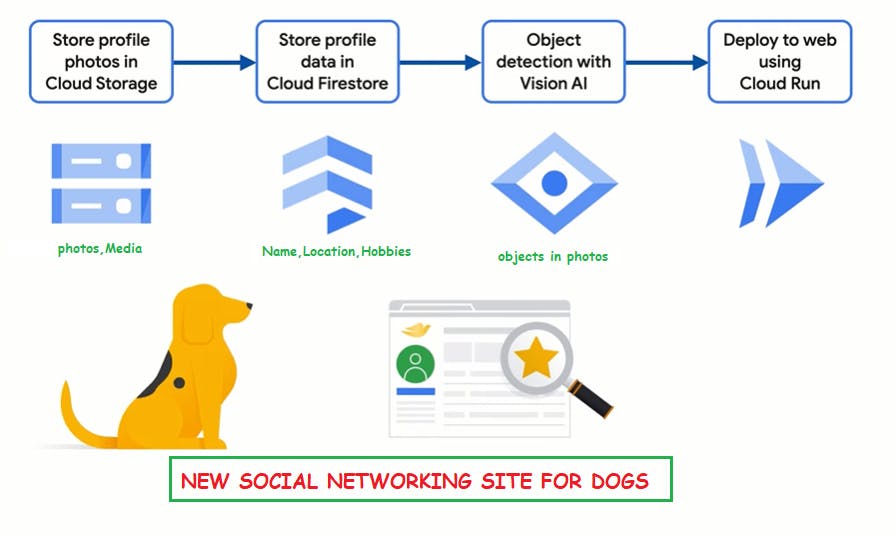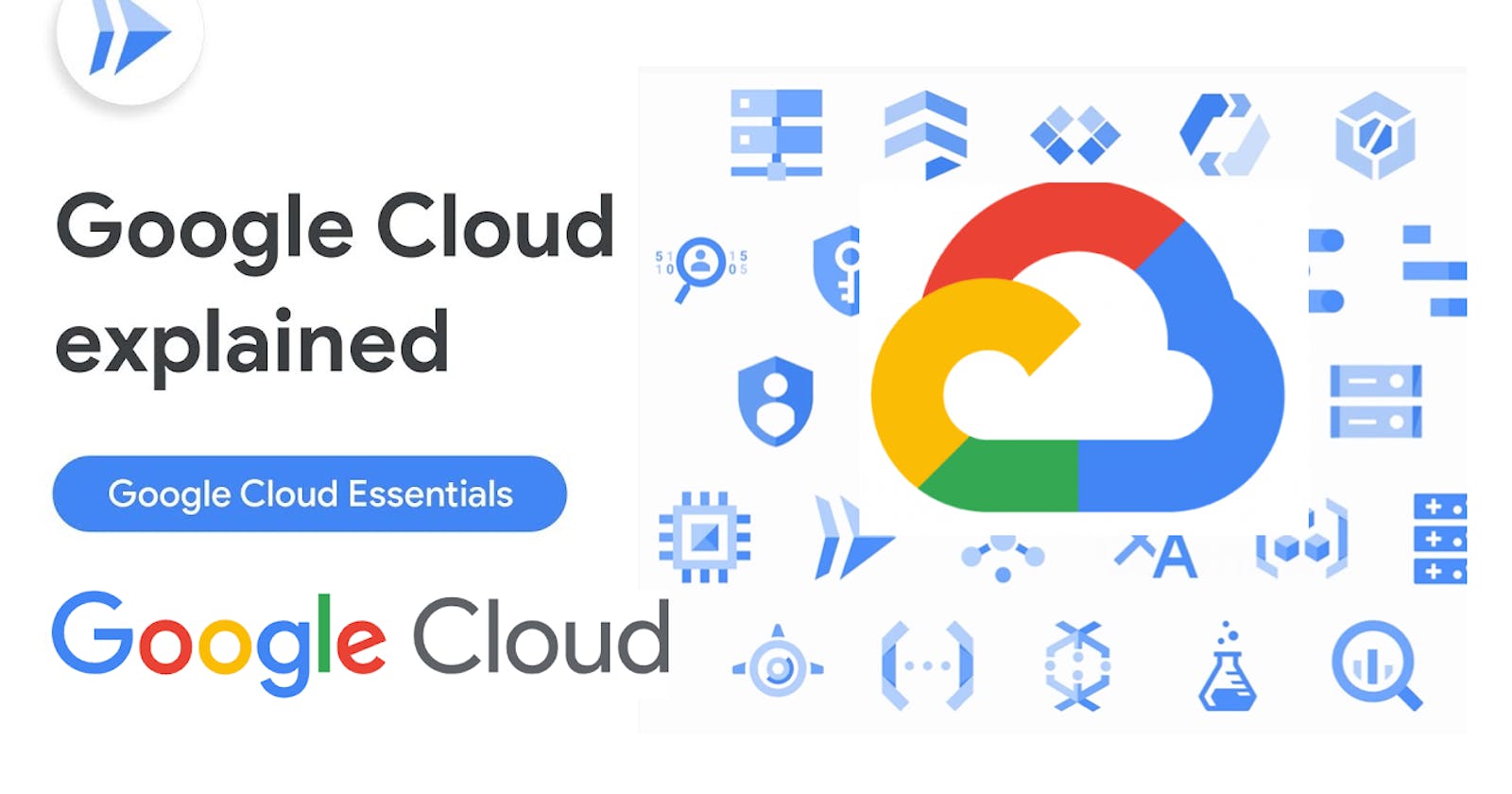This Article is great for anyone new to Google Cloud who's interested in learning more. In the next few minutes, we'll talk about what Google Cloud is and how it can help you as a developer.
What is cloud computing?
Cloud computing is all about getting things done using someone else's computers. So when you use Google Cloud, you're getting things done using Google's computers. Google Cloud lets you build in host applications, store data, and analyze data in Google's highly scalable and reliable computing infrastructure.
What is a Google data center?
Google's data centers, which are located all around the world, house the compute, storage, and networking capabilities that power Google's own products and services, including Search, Gmail, and YouTube. With Google Cloud, Google is basically sharing these computing resources with developers like yourself so you can build and run applications using Google's computing infrastructure.
Scalability with Cloud Spanner
 One of the key advantages of cloud computing is scale.
Take an example of a retailer looking to set up a database to help manage their inventory, pricing,
and demand across thousands of stores internationally. One of the biggest challenges in retail is figuring out how to handle massive seasonal spikes during the holiday season.
If you were to try to set up and manage your own on-premise database, it would likely be expensive and inefficient to provision additional hardware to do so. You'd have to pay large upfront costs to set up the additional database infrastructure, which you wouldn't even need for most of the year. You'd also need to worry about implementing your own complicated database charting strategy, managing backups, meeting performance requirements, and securing the entire thing.
One of the key advantages of cloud computing is scale.
Take an example of a retailer looking to set up a database to help manage their inventory, pricing,
and demand across thousands of stores internationally. One of the biggest challenges in retail is figuring out how to handle massive seasonal spikes during the holiday season.
If you were to try to set up and manage your own on-premise database, it would likely be expensive and inefficient to provision additional hardware to do so. You'd have to pay large upfront costs to set up the additional database infrastructure, which you wouldn't even need for most of the year. You'd also need to worry about implementing your own complicated database charting strategy, managing backups, meeting performance requirements, and securing the entire thing.
Or you could use a fully managed database like Cloud Spanner, where all this is managed for you. Google Cloud would manage scaling for you so that you only pay for the data storage you actually need. Google Cloud has hundreds of different products and services that solve problems shared by developers all around the world.
Running Code
 here's a look at several different ways that these products can help you as a developer. One of the first things you may want to do when trying out a cloud platform is hosting your code and applications.
here's a look at several different ways that these products can help you as a developer. One of the first things you may want to do when trying out a cloud platform is hosting your code and applications.
Compute Engine: gives you virtual machines that run in Google Data centers.
Cloud Run: you can deploy containerized applications on a fully managed serverless platform.
App Engine: you can deploy highly scalable web apps and other back-end services.
Storing Data
 Cloud Storage: you probably want to store data, some of it structured, some of it unstructured so Cloud Storage is perfect for unstructured data like images, videos, and audio files.
Cloud Storage: you probably want to store data, some of it structured, some of it unstructured so Cloud Storage is perfect for unstructured data like images, videos, and audio files.
Cloud SQL: hosts Google-managed versions of MySQL, Postgres and SQL Server. You can run the same relational databases you know without all the hassles of self-management.
Cloud Firestore: is a NoSQL document-based realtime database. It's popular for use cases like gaming, where it's very important for users to have the most up-to-date version of data in real time.
AI & machine learning tools
AI and machine learning tools can be helpful if you are an experienced machine learning developer, but also if you know zero machine learning, but still want to take advantage of Google's AI technologies for your own applications.
Suppose you have images-- lots of images in your application-- and you want to enhance your application by knowing what's in each image. Vision AI provides an API that will take an image and run object detection, find landmarks, extract text, and more, allowing your users to use that information in your app. Or maybe you want to analyze user comments in your application using natural language processing. With Cloud Natural Language, you can analyze a piece of text and get information about its entities, sentiment, syntax, and content categorization.
What is Vertex AI?
if you want to build and deploy your own machine learning models, you can do that as well. Vertex AI is Google Cloud's unified machine learning platform for training, hosting, and managing machine learning models.
A use case for Google Cloud
 One great aspect of Google Cloud is the opportunity to seamlessly integrate multiple products to suit your own unique use case. Say that you're building a new social networking site for dogs.
You could start out by storing profile photos in Cloud Storage. Then you could set up a Cloud Firestore database to store other profile information, like dog names, locations, and hobbies.
Next, you could use Vision AI to detect objects in each photo, like balls, stuffed animals, and bones.
One great aspect of Google Cloud is the opportunity to seamlessly integrate multiple products to suit your own unique use case. Say that you're building a new social networking site for dogs.
You could start out by storing profile photos in Cloud Storage. Then you could set up a Cloud Firestore database to store other profile information, like dog names, locations, and hobbies.
Next, you could use Vision AI to detect objects in each photo, like balls, stuffed animals, and bones.
These machine learning-powered data insights might help your users find other furry friends with similar interests. And finally, you could deploy your application to the web using Cloud Run. This would make it easy for your app to scale automatically as you gain more users.
